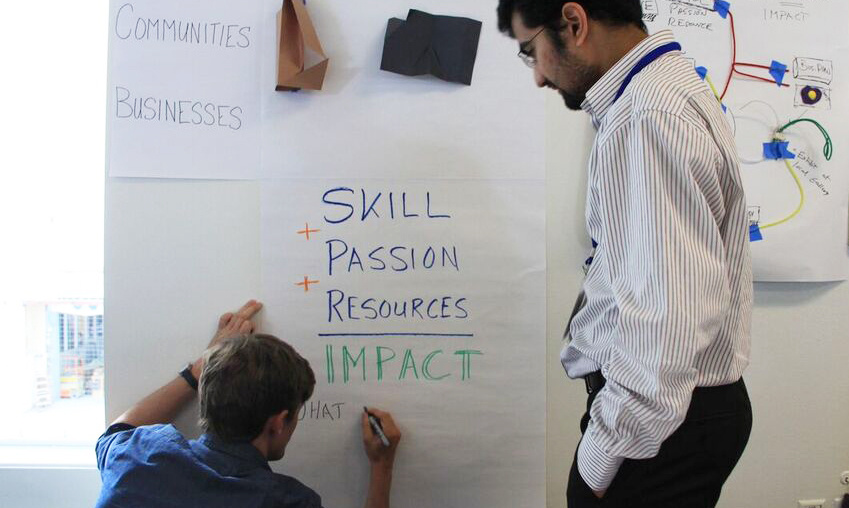Finding a New Career Path

So you chose the wrong major, or took the first job offered to you. Maybe you’re bored or too stressed or maybe you joined a Net Impact chapter during your final semester of business school and you realized you want a job with a positive environmental or social impact. There are a lot reasons you might want to change your career path.
It can seem scary and impossible, but these days people change careers all the time. The increased mobility is good for employees and employers. Diversity of thinking and of experience makes for more productive, creative teams. If you’ve been thinking that it is time for a change but don’t know how we’re here to help. We present 5 steps to successfully finding a new career path.
1- Assess the situation: Ask yourself the following questions: Why do I want to do this? Why will this new career make my life better? What are the risks involved? Find out if it’s just your current job, company or manager that’s bumming you out or if it’s your career.
Then think about what you’ve liked and disliked about past roles. Consider organizational type and size, the salary and your day to day tasks. Don’t just think about former jobs, consider things you do in your spare time as well. For example, do you enjoy planning trips for friends or perhaps you're obsessed with social media. We recommend taking a few career assessments; you’ll find plenty online tools that can help guide you towards the right position. Or check our recent blog post on finding your dream job.
2- Evaluate your strengths: What are you good at? List your accomplishments and skills. You can ask friends, family and coworkers for help. Again, don’t just think about what you’ve been paid to do in the past. Running a program like Up to Us or a Net Impact chapter looks just as good on a resume as an internship at a huge corporation. Start thinking about how these skills can be transferable between careers.
3- Research: You probably have an idea of what you want to be doing. Before you pour all of your resources into finding this new career, spend some time researching it. Look at everything from job descriptions to average salaries to the estimated future growth of the field. Try to find someone with your “dream job” and research them as well. Figure out how they got there and whether it’s a path you can emulate. Our careers page is more than just a job board, learn more about the different impact fields here.
4- Network: Connect with people. Your friends, your parents, your friend’s parents, former teachers and bosses are all a part of your network. For everyone you talk to, try to meet three more people from their network. Talk to as many people as you can. Be nice and dress professionally. Join professional organizations and go to conferences. It’s never a good idea to directly ask for a job, but ask as many other questions that you can think of.
At Net Impact's 2015 Conference, Jerry Stritzke, the CEO of REI, noted the importance of networking: "I went from an Aggie Econ major at Oklahoma State University to being the co leader of Victoria Secret without ever applying for a job." Watch the rest of his key note speech below (Skip to 35:07 to see what Jerry had to say about networking).
5- Develop new skills and gain experience: If you’re in the last semester of business school, you probably don’t want to hear that you need more education. While formal education helps, it’s not the only way you learn. Volunteer in your new field or try to get a part-time job. Take one-off classes or certificate courses. While you learn, get to know the people in your classes. They will become part of your network and will be invaluable when you’re looking.
Bonus- Act: Don’t just sit around thinking about how much you hate your job. Expand your network by trying to meet a new person every week. Or sign up for a night class in your desired field. Shadow a friend in a potential new field. Or join a group of like-minded individuals. Start small until you're ready to make the big change.




